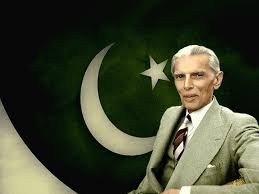The story of Quaid-e-Azam Muhammad Ali Jinnah is one of determination, resilience, and visionary leadership. He is known as the founding father of Pakistan, a country that was created out of his unrelenting pursuit of justice and the rights of Muslims in the Indian subcontinent.
Born on December 25, 1876, in Karachi, Jinnah belonged to a prosperous merchant family. From a young age, he showed exceptional intelligence and was sent to London to study law. Jinnah’s academic journey shaped him into a person who valued logic, reason, and justice. Upon returning to India, he quickly became a prominent lawyer, admired for his sharp mind and integrity.
The Early Political Awakening
In the early 1900s, Jinnah became involved in politics, joining the Indian National Congress, a party that sought self-rule for India under British colonial rule. However, Jinnah was always a staunch advocate for unity and cooperation. He worked hard to bridge the gap between Hindus and Muslims, hoping for a united India. But, as the years went by, he began to realize that the differences between the two communities were too great for a peaceful coexistence under one nation.
The Turning Point: The Creation of Pakistan
In the 1920s and 1930s, Jinnah’s disillusionment with the Congress Party grew. He believed that Muslims were not being treated fairly and that their rights were being overshadowed by the interests of the Hindu majority. It was at this time that he shifted his focus toward the All-India Muslim League, where he became the leader and spokesperson for Muslim aspirations.
Jinnah’s clear vision for the future was that Muslims needed a separate state where they could practice their religion and preserve their culture and identity. He articulated this vision with a powerful speech in 1940, calling for the creation of Pakistan. He passionately argued that Muslims and Hindus were two distinct nations with their own customs, religion, and social practices. Jinnah’s call for a separate homeland for Muslims was met with strong opposition, but his resolve never wavered.
Despite facing criticism, resistance, and personal hardships, Jinnah’s leadership only grew stronger. His steadfast leadership and unshakeable belief in the cause of Pakistan inspired millions. The Lahore Resolution of 1940, which formally demanded a separate Muslim state, was the cornerstone of this movement. Jinnah’s leadership in this pivotal moment earned him the title of “Quaid-e-Azam,” meaning “The Great Leader.”
Pakistan’s Creation
After years of struggle, negotiation, and political maneuvering, the creation of Pakistan became a reality on August 14, 1947. The partition of India led to the birth of a new nation—Pakistan. It was a triumph of Jinnah’s vision and determination. However, the moment of joy was overshadowed by the horrors of partition, which led to widespread violence, the displacement of millions, and the loss of countless lives.
Jinnah’s health began to deteriorate shortly after the creation of Pakistan, but he continued to lead the country with great dignity and courage. He became Pakistan’s first Governor-General and worked tirelessly to lay the foundations of the new state. His speeches emphasized unity, faith, and discipline as the cornerstones of Pakistan’s future.
Jinnah’s Legacy
Tragically, Quaid-e-Azam Muhammad Ali Jinnah passed away on September 11, 1948, just over a year after Pakistan’s creation. His death was a great loss to the nation, but his legacy lived on. Jinnah’s vision for Pakistan as a democratic, inclusive nation built on the principles of justice and equality continues to inspire generations.
The country he founded, Pakistan, remains a testament to his leadership. Jinnah’s principles, particularly his call for unity and his advocacy for the rights of minorities, continue to serve as guiding lights for the nation. Even today, Quaid-e-Azam is remembered not just as the founder of Pakistan but as a symbol of perseverance, leadership, and hope for millions.
Quaid-e-Azam’s vision was not merely political but deeply rooted in the belief that every individual, regardless of their religion or background, should have the freedom to live with dignity and respect. His life and work remain an enduring source of inspiration, a reminder that one individual’s determination can change the course of history.
THE END.



